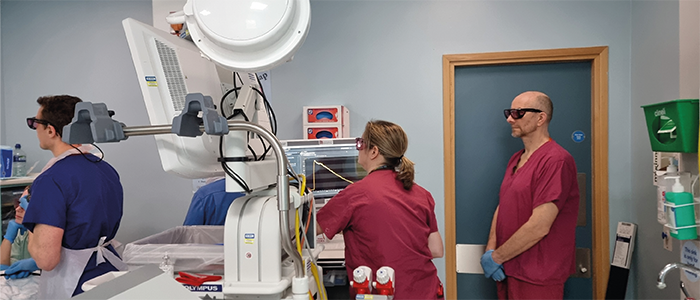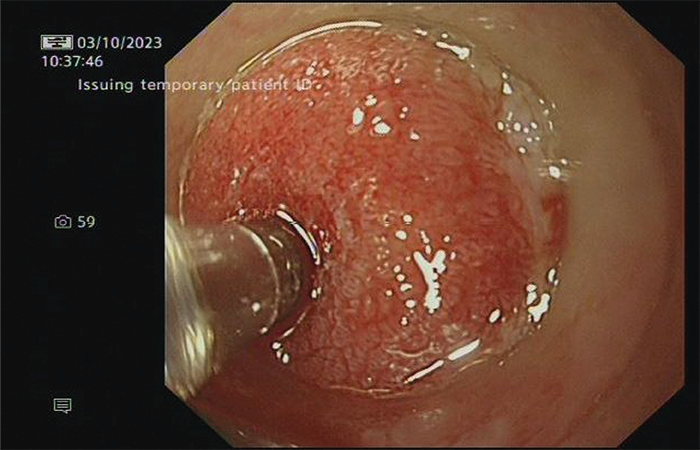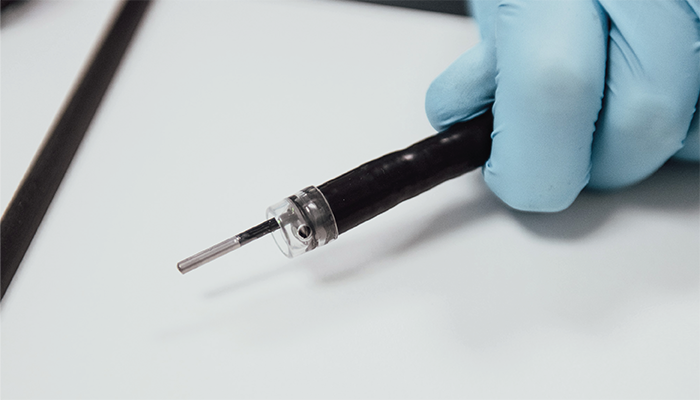
Credit: RaPIDE Project
A new test for esophagus cancer diagnosis looks set to drastically reduce discovery time from a couple weeks to less than a minute.
Esophageal cancer, if caught early, is often treatable, potentially during the same diagnostic endoscopy. Rapid diagnosis, therefore, has the potential to revolutionize the field, which is what inspired Alex Dudgeon and colleagues in their latest study, RaPIDE (RAman Probe for In vivo Diagnostics (during oesophageal) Endoscopy) (1).
“Early on, we started treating patients with photodynamic therapy, which proved effective for those with early disease, but symptomatic patients were usually too far advanced to see a positive reaction,” says Dudgeon, “Knowing that innovative technology could have a big impact in this area, we set out to develop a technique to improve the identification of early disease.”

Credit: RaPIDE Project
The team faced a variety of challenges through the COVID-19 pandemic, including furlough and complications during regulatory approvals. However, with support from the University of Exeter, the University of Bristol, and Gloucestershire Hospitals NHS Foundation Trust, they proved triumphant in developing an endoscopic technique for early detection and diagnosis of esophageal cancer.
The technique uses Raman spectroscopy to measure the “fingerprint” of biological molecules present in the sample ahead of advanced statistical methods that help clinicians identify whether the area is cancerous.

Credit: RaPIDE Project
“Once proven, this technique would take away the need for tissue removal and could allow for treatment like RFA and EMR immediately – enabling real-time therapeutic targeting and monitoring of response,” Dudgeon explains.
As the system is tested in clinical trials to determine its effectiveness in living patients, the team strive to seeking funding for a larger multicenter trial – hoping to develop the diagnostic model for multiple pathologies, “We’re planning to explore the utilization of this technique in a range of organs – using the current probe for hollow organs, and a smart Raman needle probe for solid organs.”
References
- ClinicalTrials.gov (2024). Available at: https://clinicaltrials.gov/study/NCT03468634.




